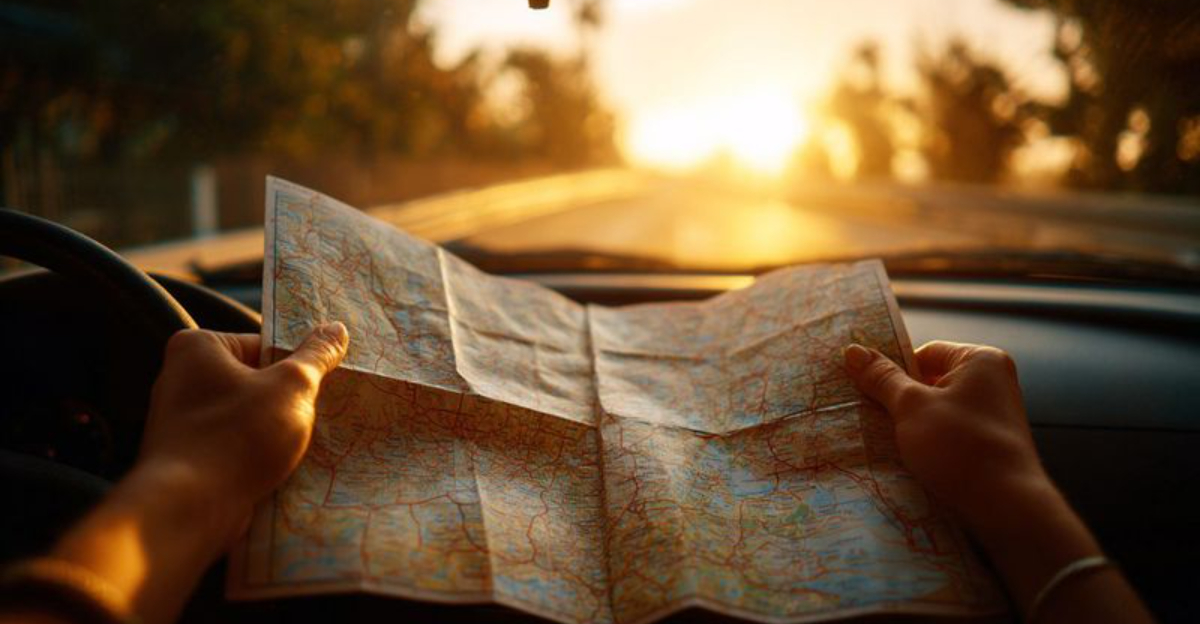18 Things That Are Slowly Fading From Society
Ever notice how things you grew up with are starting to feel like ancient relics? It’s not just you—society is quietly ghosting a whole collection of habits and household essentials.
If you’ve ever felt a little weird about missing the sound of dial-up internet or the thrill of folding a paper map, welcome to the club. This isn’t just nostalgia; it’s a celebration of all the ways we’re growing, ditching old baggage, and choosing what actually fits our lives now.
So, let’s honor these 18 things fading into the rearview mirror—not with regret, but with a wink, a laugh, and a whole lot of freedom.
1. Landline Phones
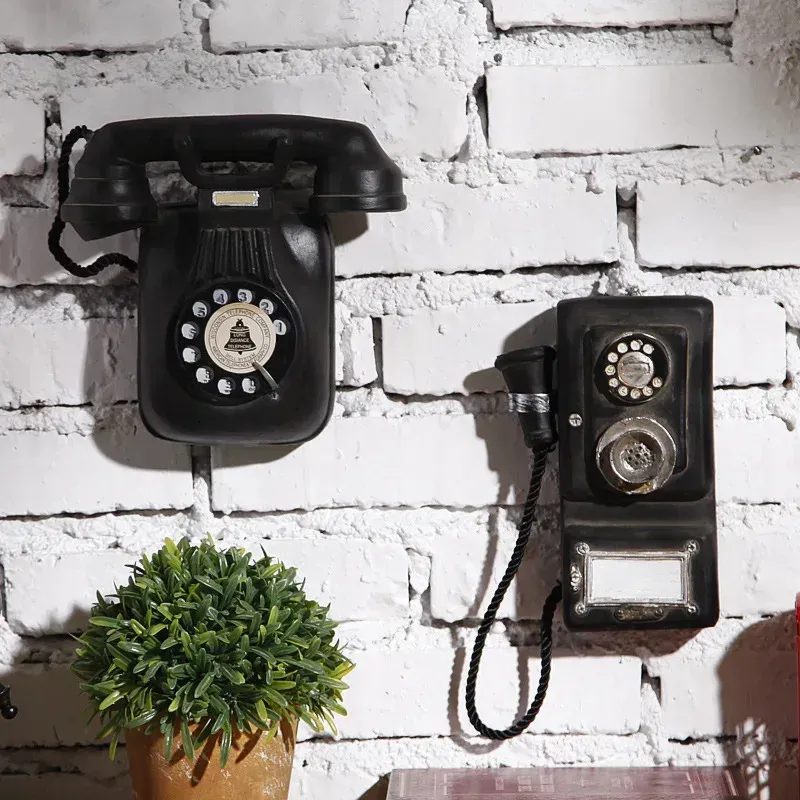
Remember when, as a kid, you had your entire social life scheduled around the family landline? Every call was a gamble—would it be your crush, or would it be Aunt Marge with another story about her cat? There was a tiny thrill in picking up the receiver, the cord twisting itself into impossible knots.
These days, the landline has gone the way of the dodo, replaced by sleek smartphones and endless text threads. There’s a weird comfort in not having to answer calls for everyone else in the house. You can actually screen, ignore, or respond from anywhere—no more sprinting through the house when the phone rings at dinner.
Letting go of the landline means you’re free from unexpected telemarketer ambushes and the shared chaos of missed messages. Sure, there’s a bit of nostalgia for the old busy signal, but you have to admit: having your own line is a small, everyday victory. Embrace it—you’ve earned the peace and privacy.
2. Printed Newspapers and Magazines

The ritual of Saturday mornings, coffee in hand, flipping through a newspaper so big it could double as a blanket—was oddly satisfying. Your fingers always ended up smudged with ink, and somehow that felt like an important part of adulthood, even if you were just checking the comics.
Now, news breaks on your phone before you’ve even left bed. Magazines? They’re mostly digital, living in apps instead of mailboxes. There’s relief in knowing you’re not drowning in paper, but sometimes, you miss that lazy, tactile pause that print once gave you.
What’s gained? More trees, less clutter, and headlines that update in real time. You don’t have to worry about subscriptions piling up or recycling day guilt. It’s growth, not just convenience—proof that you’re adapting, not just surviving.
3. Dial-Up Internet
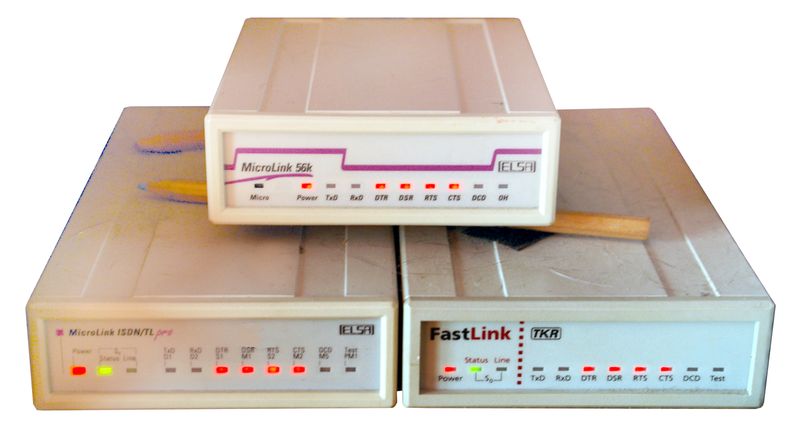
Anyone else remember the nerve-wracking symphony of screeches that dial-up internet made? Logging on was a commitment—there was zero chance you’d sneak online without everyone in the house knowing. And if someone picked up the phone mid-download, your hopes (and patience) evaporated in an instant.
Today, the slow, painstaking ritual is a distant memory. Wi-Fi is so seamless, you forget it’s even there—until it’s not, and suddenly you’re transported back to 1999 in a panic. But that lag time also meant you savored your online minutes and were forced to step away, sometimes.
Ditching dial-up symbolizes more than faster speeds. It’s about access, efficiency, and the quiet luxury of browsing from your sofa—no more unplugging your parents’ phone line just to check your email. Growth looks a lot like fewer cables and a lot less stress.
4. Handwritten Letters and Cards

There’s a particular joy in opening an envelope addressed by hand—the anticipation, the personal touch, the smell of actual paper. Writing a letter was an event, requiring time, thought, and those awkward moments when you realized you’d run out of stamps (again).
Now, most heartfelt messages arrive via emoji or text, and that’s okay. Digital notes are instant, convenient, and less likely to get lost en route. Yet, admitting you miss the permanence of ink and sentiment doesn’t mean you’re out of touch.
Swapping pens for pixels is about keeping up with life’s pace—your words still matter, they’re just moving faster. And hey, at least you don’t have to decipher anyone’s notorious chicken-scratch handwriting anymore. Sometimes, liberation is just a click away.
5. Physical Maps
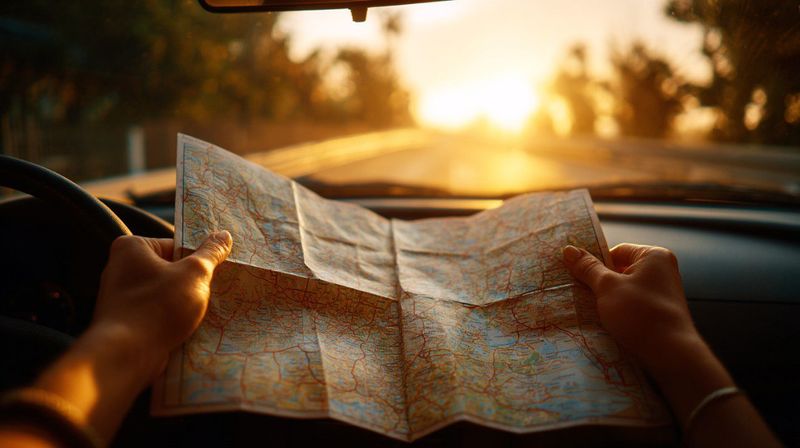
Road trips once required an entire seat just for the map. You’d unfold the thing, trying to find your spot among miles of squiggly lines, praying your co-pilot didn’t refold it the wrong way. Getting lost was a rite of passage, not a tech glitch.
Today’s GPS lets you zip to anywhere, guided by a polite voice and a glowing blue line. Paper maps rarely make an appearance—except, maybe, as quirky wall art in hipster cafes. That’s not a bad trade for never again arguing over which way is north.
There’s a small satisfaction in knowing you’ll never have to admit defeat and stop for directions. You’re free to wander without worrying about origami-level folding skills. Progress means more time exploring, less time deciphering.
6. VHS Tapes and Players
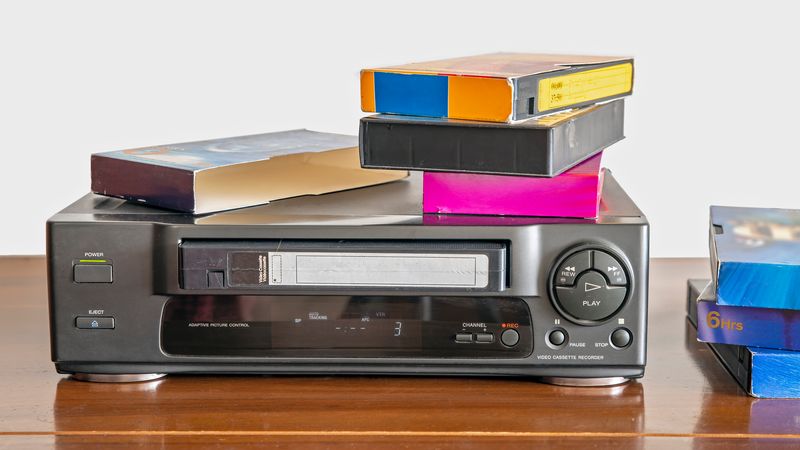
The sound of a VHS tape being shoved into a VCR is unmistakable—a satisfying chunk that meant movie night was about to get real. There was that special anxiety, too, about whether the tape was rewound, or if you’d accidentally taped over last week’s show.
Streaming platforms have made VHS tapes and their plastic cases a thing of the past. No more frantic searches for a pencil to fix a loose ribbon, or those late fees when you forgot to return a rental. It’s all instant, accessible, and mercifully, without tracking lines.
Losing VHS isn’t just about cleaner shelves; it’s about saying goodbye to clunky technology in favor of convenience and clarity. You’re choosing not to stress over “please be kind, rewind”—and that feels oddly grown-up.
7. Floppy Disks
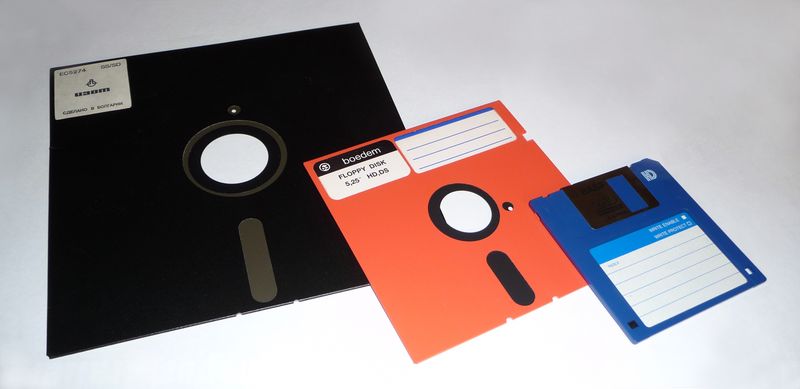
Once upon a time, saving your homework meant popping a plastic square into a clunky computer. Floppy disks were small, mysterious, and somehow always at risk of a tragic coffee spill. If you had more than one, you felt like a secret agent carrying state secrets.
But, let’s be honest—they didn’t hold much. Cloud storage and USB drives blew them out of the water, offering way more space and zero fear of accidental erasure by magnet. That little save icon on your screen? A digital shrine to floppies everywhere.
Embracing new tech is about ditching the drama of lost assignments and full disks. It’s a win to never again see “disk full” ruin your day. Now you carry a decade’s worth of files in your pocket, and that’s a power move.
8. Typewriters

Typewriter keys had a satisfying clack that made you feel like the protagonist in your own noir film. Editing meant messy corrections or starting over, and typos were your sworn enemy. Still, there was a certain gravitas to hearing your words thunk onto a real page.
Computers have made creating, saving, and fixing things easier. The romance of typewriter ribbon stains is gone, but so are cramped hands and endless retyping. Now, your ideas move as quickly as your brain—no carbon paper required.
You’re not less creative for trading nostalgia for ease. There’s freedom in being able to hit “delete” without a trace. And if you ever crave that mechanical magic again, there’s always the sound effect apps (or your favorite detective movie).
9. Film Cameras
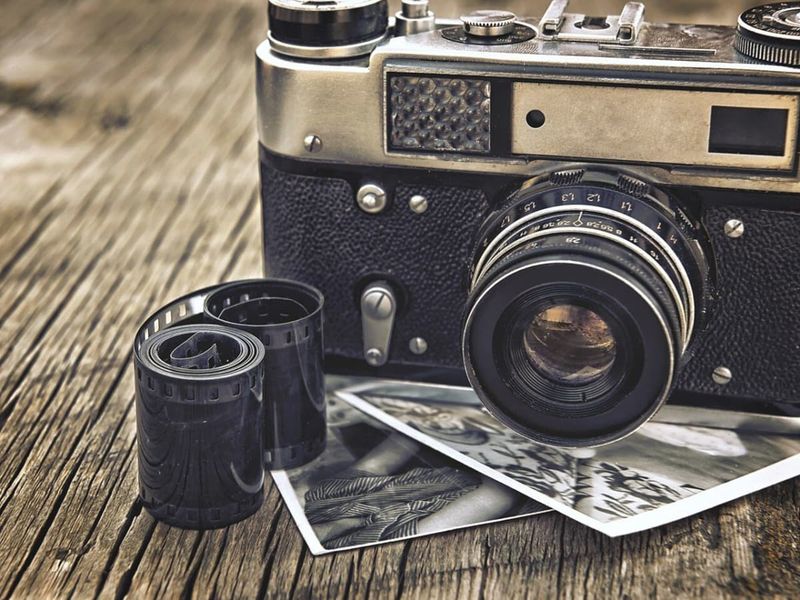
Loading film, winding the lever, snapping a shot you wouldn’t see for days—it was all part of the experience. Each photo was precious, because you only had so many exposures before you hit the end of the roll, and there was always that bit of nervousness waiting to see if your thumb ruined the whole shot.
Digital cameras and phones have made instant gratification the new norm. You can take a hundred selfies, delete ninety-nine, and never worry about wasting a single frame. There’s relief in forgiving mistakes and just trying again.
Trading film for pixels doesn’t make memories less valuable—it means you’re allowed to capture more, fail more, and live a little looser. Growth is about learning that life doesn’t always need a perfect shot. Sometimes, the outtakes are the best part.
10. Paper Checks

Balancing a checkbook used to be a kind of adult status symbol—a sign you had your life together, or at least were trying. Writing out a check meant practicing your best signature and hoping it cleared before your rent was due. There was always a sense of accomplishment, or mild panic, at the end of each month.
Now, digital banking apps and payment platforms make paper checks seem ancient. You pay bills from your couch, transfer money instantly, and rarely have to find a stamp. It’s a sweet relief to avoid the “check’s in the mail” excuse and all the uncertainty that came with it.
Moving past checks is about streamlining your life. You’ve ditched unnecessary steps in favor of clarity and control. Who knew that getting rid of a tiny piece of paper could open up so much space for peace of mind?
11. Public Payphones
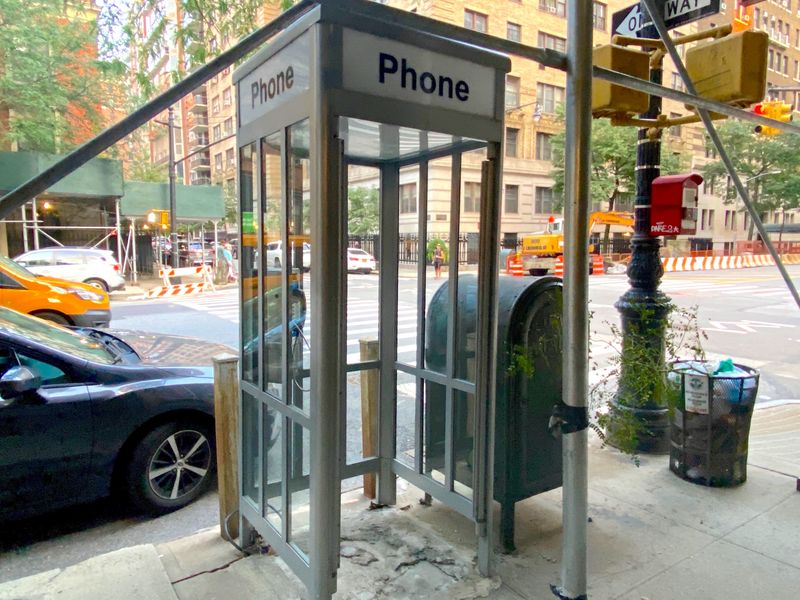
There was a time when finding a payphone felt like a scavenger hunt—or the plot of half the movies from the ’80s. You needed coins, nerves of steel (hello, questionable hygiene), and enough luck to avoid someone eavesdropping on your conversation. For many, this was the original social network.
Now, cell phones have made payphones nearly extinct, tucked away in city corners like forgotten relics. You don’t have to memorize phone numbers, worry about running out of change, or wait your turn in the rain. Freedom tastes a lot like never needing to dial collect.
Abandoning payphones is about independence and convenience. You can call for help, order a pizza, or text your best friend without leaving your comfort zone. One less germ-ridden hurdle to jump over—cheers to that.
12. Fax Machines
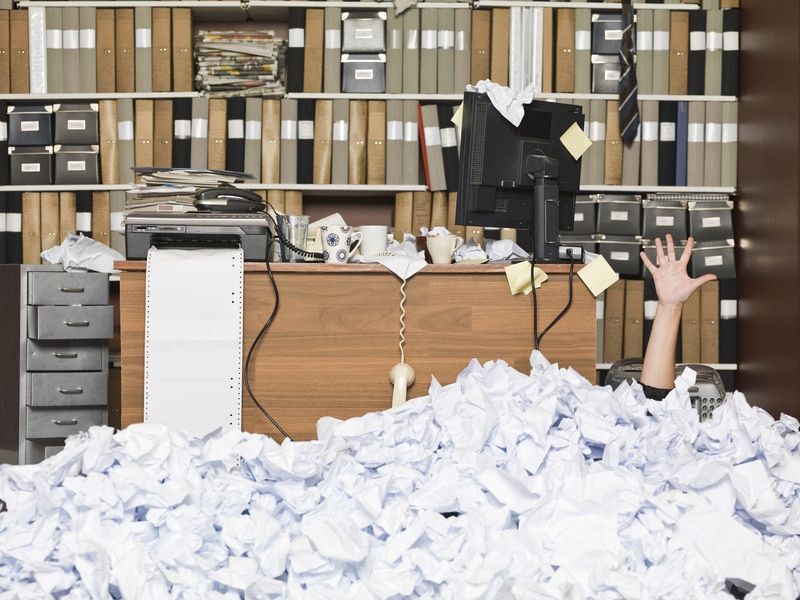
Remember the suspense of waiting for a fax to come through—those endless beeps, the suspenseful whirring, and that final, triumphant clatter when your document arrived? Fax machines turned every office into a mini spy headquarters, even if you were just sending over a lunch order.
Email swept in and kicked faxes to the curb, offering instant delivery with zero paper jams. You no longer have to ask, “Did you get my fax?” or pray the machine didn’t eat your most important contract. That’s a level of security and sanity everyone deserves.
Letting go of the fax is a declaration of sanity. No more mysterious busy signals or toner disasters. You’re free to send what you want, when you want, with proof it actually got there—no dramatic soundtrack required.
13. Compact Discs (CDs)
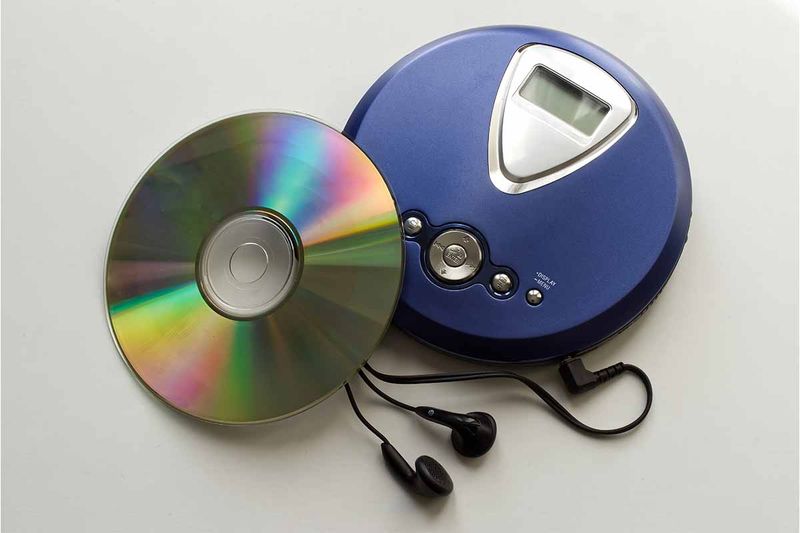
Burning a mix CD for your crush was peak romance in the early 2000s. You’d spend hours picking songs, scribbling on the case with a Sharpie, praying they’d catch all your subtle hints. Scratches were a heartbreak, skips a tragedy, but each disc was a love letter.
Streaming has made music endless, portable, and virtually indestructible. Now, you can share a playlist in seconds and never worry about losing your favorites under the car seat. There’s something liberating about having the world’s discography on-demand.
Parting ways with CDs means less clutter, less heartbreak, and more spontaneous dance parties. Your nostalgia is valid, but so is your newfound freedom. Besides, who really misses untangling headphone cords, anyway?
14. Rotary Phones
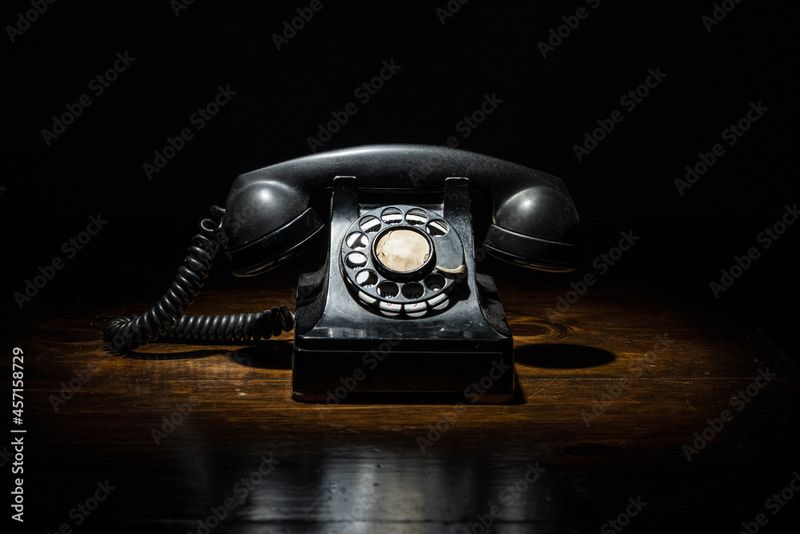
Rotary phones were equal parts patience test and tactile pleasure. The whir and click as you dialed each number felt like a ceremony—one you couldn’t rush, even if you tried. God help you if you misdialed on the last digit.
Smartphones have replaced rotary phones, making calls as easy as tapping a screen. The ritual is gone, but so is the hand cramp. Plus, you’re now free from making awkward small talk with the operator or wrestling with a tangled cord.
Saying goodbye to rotary phones is about choosing speed and flexibility. There’s nothing wrong with missing the clicky spin, but your time is better spent actually connecting—not just waiting for a dial to spin back. Efficiency finally wins.
15. Encyclopedias

Owning a full set of encyclopedias once felt like having the universe at your fingertips. Those heavy tomes lined your shelves, promising answers to every possible question—if you were willing to dig. There was a certain pride in their sheer presence.
Now, the internet has made knowledge instant and infinite. You don’t need to leaf through alphabetized volumes or cross-reference indexes. Fact-checking is now a matter of thumb speed, not bookshelf space.
Letting go of encyclopedias is about progress—knowing that wisdom isn’t just for those with ample shelf space. You’ve traded weight for accessibility, and that’s a leap worth celebrating. Besides, no one misses dusting all those covers.
16. Paper Tickets

Remember the tiny thrill of tearing a paper ticket stub at a concert or clutching one for a cross-country train ride? Each ticket was a keepsake, a badge of adventure, or proof you’d really been there. Sometimes you’d even save them in a shoebox, just in case nostalgia called.
Digital tickets have taken over—no more frantic searching through pockets or purses, no more panic when your dog eats your movie pass. Everything’s on your phone, neat and tidy. It’s one less thing to worry about before heading out.
Embracing e-tickets means less clutter and more spontaneity. Your memories aren’t any less real, they’re just lighter to carry. Plus, your shoebox can finally hold something else (like, you know, actual shoes).
17. Plastic Shopping Bags
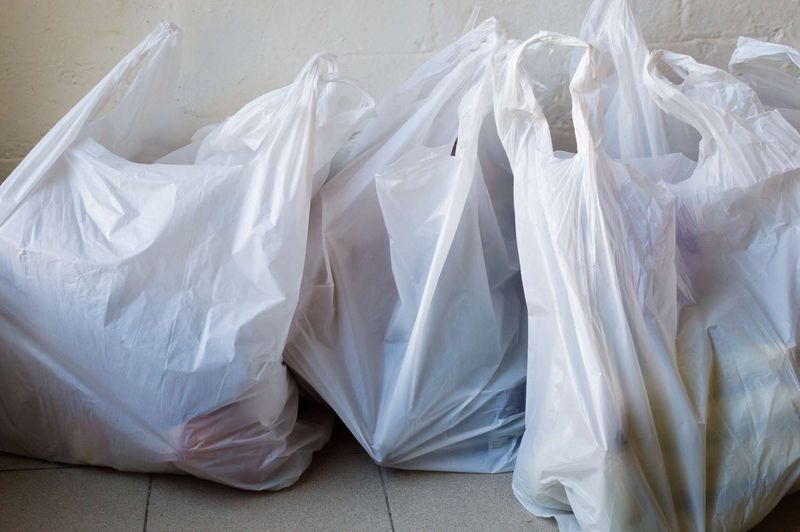
The sound of plastic bags rustling from the grocery store was once the background music of a Saturday afternoon. Their endless uses were legendary: lunch bag, gym bag, rain hat in a pinch. But they multiplied faster than rabbits, and let’s be honest—nobody knew how to store them without starting a plastic avalanche.
Shifting to reusable bags is more than an eco win; it’s a lifestyle flex. You’re not just saving turtles, you’re saving yourself from the shame spiral of hoarding bags “just in case.” Plus, reusable bags make a way better fashion statement.
Letting go of plastic bags is a small but mighty declaration of intention. You’re choosing quality over convenience, and the planet isn’t the only one breathing easier. Cheers to progress—one less avalanche at a time.
18. Incandescent Light Bulbs
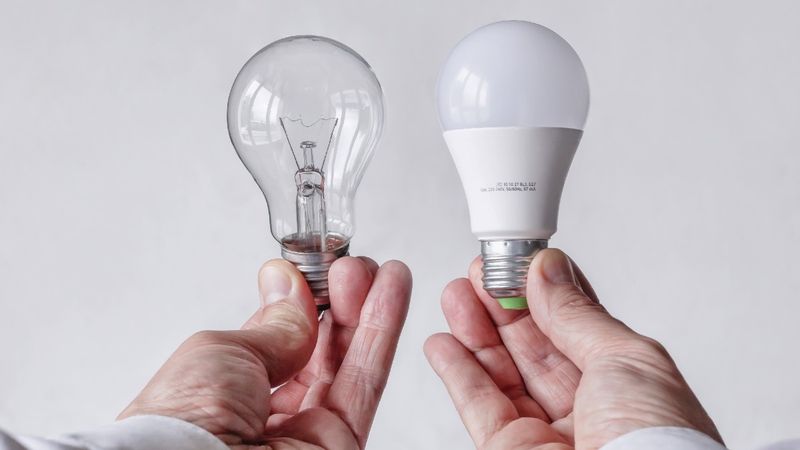
Incandescent bulbs had a certain golden glow that felt like home. But let’s be real—they burned out faster than your motivation on a Monday and left you with light bills that made your wallet weep. Changing bulbs was practically a hobby in some households.
Energy-saving LEDs have taken over, lasting for years and costing way less to run. They don’t buzz, overheat, or fizzle out just when you need them most. You no longer have to keep a secret stash in the junk drawer for bulb emergencies.
Shedding these bulbs is about making brighter, tougher choices. You’re saving energy, money, and your sanity. It’s proof that even small swaps can add up to big relief—light at the end of the (literal) tunnel.

